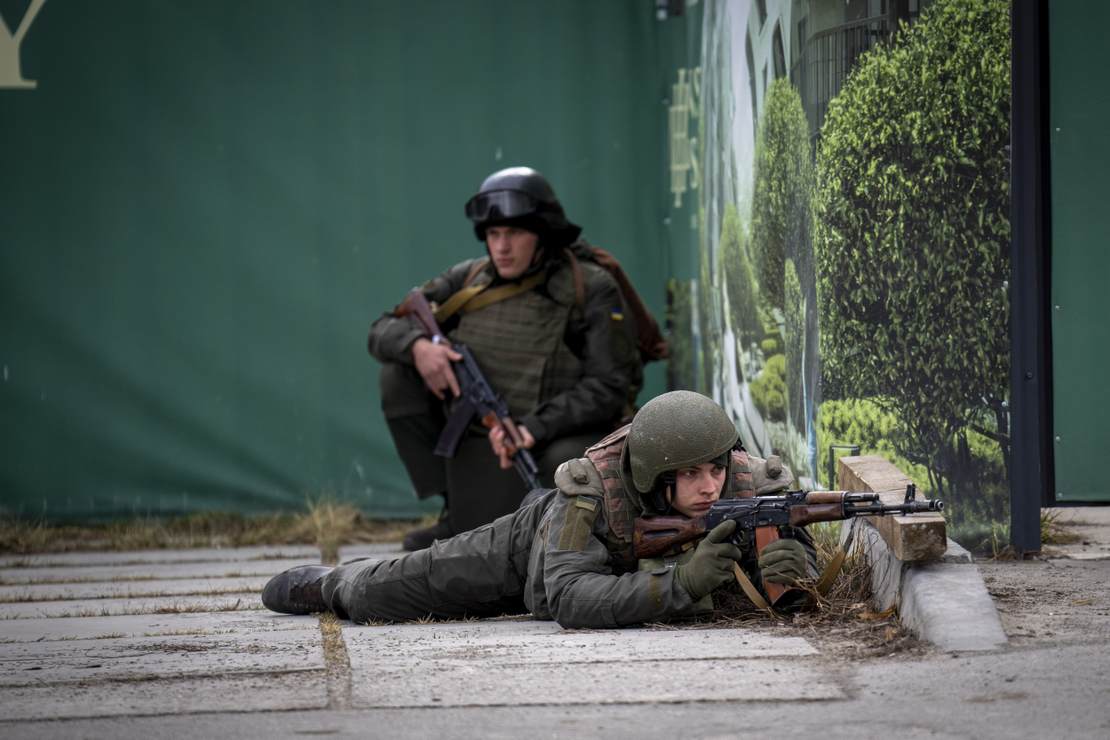I’m okay with not using the word “war” to describe what Russia is doing. Whatever the hell this is, it’s not what I think of when I think of war:
❗❗❗Розстріл цивільного авто з людьми 🇷🇺російськими загарбниками! pic.twitter.com/zYU9sxh1Gr
— 🇺🇦Armed Forces (@ArmedForcesUkr) March 8, 2022
“There are very credible reports of civilians coming under fire as they try to evacuate. Targeting civilians is a war crime, and it is totally unacceptable,” said the head of NATO this morning. If you doubt him, steel yourself for this grisly evidence:
A captured Russian said there was a direct order to shoot civilians near Kharkiv. He claimed he was injured by his fellows for warning Ukrainian civilians. This should be independently verified, although there were videos of shot civilians in cars – https://t.co/COSbumASnZ pic.twitter.com/M7ndhZWJeU
— Euromaidan Press (@EuromaidanPress) March 8, 2022
Russia has been keen not to describe what’s happening in Ukraine as “war” for reasons I don’t understand. Presumably it’s a gesture to the now-shattered spirit of fraternity between the two sides. “War” is what you wage against an enemy. A “special military operation” is what you wage against kin. “Wars” are bloody and miserable with civilian suffering on a vast scale, something completely absent from Russian news coverage of Ukraine. A “special military operation” implies something more surgical, aimed exclusively at the “Nazis” who are holding Ukrainians captive.
Putin’s government is so serious about this that they’ve made use of the words “war” and “invasion” to describe the conflict in Ukraine punishable by a 15-year prison sentence as part of their new censorship law. Western media outlets like the New York Times and Bloomberg are pulling out of the country as a result, unable legally to tell the truth about what’s happening but unwilling to do otherwise.
It’s one thing for Russia to forbid use of the word “war” as part of its fascist whitewashing of the brutality it’s inflicting on Ukraine. It’s another thing for allegedly respectable international institutions to adopt that fascist framing as their own. This morning the Irish Times claimed that the UN had also slapped a ban on the word “war” in this case:
In an email to staff on Monday, the UN communications department instructed employees not to describe the situation as a war and not to add the Ukrainian flag to personal or official social media accounts or websites.
“Some specific examples of language to use/not use at the moment,” read the email which has been seen by the Irish Times.
“[USE] ‘conflict’ or ‘military offensive’ and NOT ‘war’ or ‘invasion’ when referring to the situation in Ukraine”.
It further banned staff from adding the Ukrainian flag to social media profiles or websites, something that has become a common expression of solidarity with the country since it was invaded on February 24th.
I understand the instruction not to add the Ukrainian flag to their bios. As morally vacuous as that is, the UN’s duty to be evenhanded among its members regularly leads it into moral vacuity. But it’s not being evenhanded by adopting Russia’s Orwellian phrasing to describe the war. It’s favoring Russia by doing so, minimizing the aggression against Ukraine by implying that it doesn’t rise to the level of what the world normally regards as “war.”
Ukraine’s foreign minister saw the report and was furious, as anyone would be:
It’s hard to believe that the UN could essentially impose the same kind of censorship as the Kremlin imposes inside Russia now by banning the use of words ‘war’ and ‘invasion’ among UN staff. I urge the UN to swiftly refute such reports if they are false. UN reputation at stake.
— Dmytro Kuleba (@DmytroKuleba) March 8, 2022
But is it true?
Snopes dug into the story and found that it is — sort of. The email seen by the Irish Times is authentic. There is an advisory in place not to call the war a “war.” But that advisory doesn’t extend to the entire UN; it was sent by the department of global communications at the UN Regional Information Centre for Western Europe, a branch of the United Nations. In fact, some top UN officials have already used the word “war” in reference to the conflict:
Nearly two weeks on, it is painfully clear that those suffering the most after Russia’s invasion of #Ukraine are civilians – killed, wounded, displaced. This war is senseless. We are ready to support all good-faith efforts at negotiation to end the bloodshed.
— Rosemary A. DiCarlo (@DicarloRosemary) March 7, 2022
DiCarlo is an under-secretary-general at the UN. The head of the UN’s communications department also responded to Kuleba on social media:
I lead @UN communications. No such official communication has gone out to global staff to refrain from using certain words. https://t.co/RVOZakUqH1
— Melissa Fleming 🇺🇳 (@MelissaFleming) March 8, 2022
Even the email sent by the branch didn’t permanently ban use of the word “war” to describe Russian activities. It did so provisionally, while “waiting for updated guidance on specific terminology following the General Assembly resolution, which notably uses the word ‘aggression.’”
Which is a relief. But why is the branch of the UN based in western Europe, of all places, holding off on using the word “war” when major UN officials aren’t? Given the show of solidarity in Europe on Ukraine’s behalf, the western European wing of the organization should be leading on calling Russia’s invasion what it is, not holding back.
On that note, I’ll leave you with this scene outside the Russian embassy in Dublin yesterday. Don’t think of it as vandalism. Think of it as a special vehicular operation.
A large truck has crashed through the gates of the Russian embassy in south Dublin. One man has been arrested. pic.twitter.com/35yLDfGhEd
— RTÉ News (@rtenews) March 7, 2022

